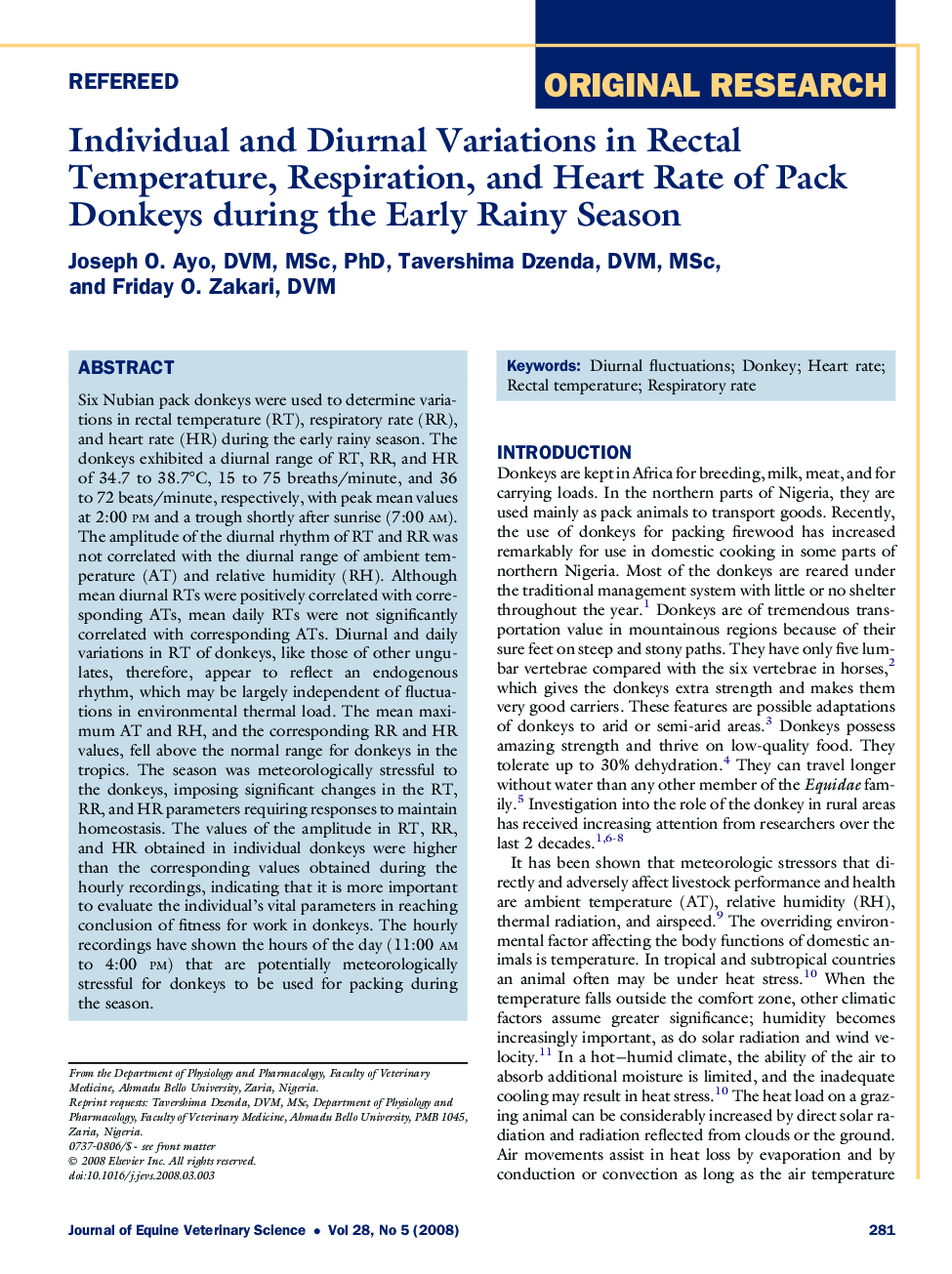| Article ID | Journal | Published Year | Pages | File Type |
|---|---|---|---|---|
| 2396242 | Journal of Equine Veterinary Science | 2008 | 8 Pages |
Six Nubian pack donkeys were used to determine variations in rectal temperature (RT), respiratory rate (RR), and heart rate (HR) during the early rainy season. The donkeys exhibited a diurnal range of RT, RR, and HR of 34.7 to 38.7°C, 15 to 75 breaths/minute, and 36 to 72 beats/minute, respectively, with peak mean values at 2:00 pm and a trough shortly after sunrise (7:00 am). The amplitude of the diurnal rhythm of RT and RR was not correlated with the diurnal range of ambient temperature (AT) and relative humidity (RH). Although mean diurnal RTs were positively correlated with corresponding ATs, mean daily RTs were not significantly correlated with corresponding ATs. Diurnal and daily variations in RT of donkeys, like those of other ungulates, therefore, appear to reflect an endogenous rhythm, which may be largely independent of fluctuations in environmental thermal load. The mean maximum AT and RH, and the corresponding RR and HR values, fell above the normal range for donkeys in the tropics. The season was meteorologically stressful to the donkeys, imposing significant changes in the RT, RR, and HR parameters requiring responses to maintain homeostasis. The values of the amplitude in RT, RR, and HR obtained in individual donkeys were higher than the corresponding values obtained during the hourly recordings, indicating that it is more important to evaluate the individual's vital parameters in reaching conclusion of fitness for work in donkeys. The hourly recordings have shown the hours of the day (11:00 am to 4:00 pm) that are potentially meteorologically stressful for donkeys to be used for packing during the season.
